Campaign Resources (403 found)
The Shell Starts to Crack? Real Owners of Myanmar’s Oil and Gas Come Forward
Corrupt politicians all over the world use companies and trusts with hidden ownership to seize public property worth billions of dollars. This deprives ordinary citizens of money that should be spent on development and empowers unaccountable elites, often helping them gain and maintain power at the expense of democracy, human rights and peace.
Revealing the real people behind companies is critical to achieving genuine reform in Myanmar, where military families and crony tycoons have long benefited from control of natural resources like gas and gemstones. This is a critical time—in July 2014, Myanmar became a candidate member of the Extractive Industries Transparency Initiative (EITI), a global transparency standard which recommends that the
identities of individuals who own and control oil, gas and mining companies are published. If Myanmar can meet the standard, it will go a long way to addressing the question of who really owns the companies that control the country’s most valuable natural assets […]
သမၼတ၏ ဘက္ေတာ္သားမ်ားသာ ျဖစ္ၾကသည္ (All the President’s Men)
In the last year, the Myanmar National Human Rights Commission enabling law was passed, finally institutionalizing its mandate that will begin in 2015. The human rights situation in Burma certainly needs any instrument possible, with continuing abuses by the Burma Army, violations […]
• • •Critique of Japan International Cooperation Agency’s Blueprint for Development in Southeastern Burma/Myanmar
The Japan International Cooperation Agency (JICA) has recently issued a blueprint that proposes industrial development in Southeast Burma/Myanmar, purportedly to aid in the return and settlement of refugees and Internally Displaced Persons (IDPs) in Karen and Mon States. However, the Karen Peace Support Network (KPSN), a network of nearly 30 ethnic Karen organizations, cautions JICA that its blueprint for infrastructure development such as roads and industrial estates in the war-torn southeast is premature and flawed, potentially exacerbating conflict in the region.
The KPSN (formerly KCBPSN) is the largest network of Karen civil society organizations in Burma/Myanmar. These organizations have been providing support for vulnerable people in this conflict-torn region for decades, striving to empower local communities, build transparent and accountable institutions, and help create a sustainable peace in Burma/Myanmar. KPSN and its member organizations are important stakeholders which must be included in any development planning process in the Karen areas of the southeast […]
• • •ACSC/APF 2014 Post Conference Report
As a member of the Association of Southeast Asian Nations (ASEAN), Myanmar accepted the gavel that symbolizes the ASEAN presidency. This was a historic moment since this is the first time Myanmar has taken the Chair since it became a member of ASEAN. As Chair, Myanmar is responsible for hosting many important regional forums and events during 2014.
The ASEAN Civil Society Conference (ACSC), also known as the ASEAN Peoples’ Forum (APF), is held independently by the ASEAN Chair country in advance of, and parallel to, the official ASEAN Summit, which is attended by ASEAN and regional leaders. The first ACSC/APF took place in Malaysia in 2005. Since then it has taken place in the Philippines (2006), Singapore (2007), Thailand (2009), Vietnam (2010), Indonesia (2011), Cambodia (2012), Brunei (2013) and this year in Myanmar (2014). The 10th ACSC/APF took place on 21 – 23 March 2014 at the Myanmar Convention Center in Yangon, Myanmar.
• • •Navigating Paths to Justice in Myanmar’s Transition
Since President Thein Sein and his government took office in 2011, Myanmar’s transition has unfolded at a pace that has surprised many and earned the acclaim of western governments, financial institutions, and private-sector investment analysts.1 The Burmese population of approximately 60 million has endured more than a half-century of military dictatorship, armed conflict, economic dysfunction, and political repression.2 A meaningful transformation into a peaceful society that enjoys economic development and functions democratically now seems plausible, though it is far from guaranteed. Ultimately, the blanket immunity afforded by the 2008 Constitution shields the acts attributable to prior regimes from any form of accountability.3 Whether the reform process will evolve to include measures that address the massive and systematic injustices of the past remains less certain.
• • •Myanmar’s Rosewood Crisis
Extremely rapid growth in Chinese imports of ‘redwood’, ‘rosewoods’ or ‘Hongmu’ timbers from Myanmar in the past two years is directly driving increased illegal and unsustainable logging, posing a real threat to governance, the rule of law and the viability Myanmar’s dwindling forests.
EIA research shows that, based on current trends, the two most targeted Hongmu species in Myanmar – tamalan and padauk – could be logged to commercial extinction in as little as three years.
With financial rewards for illegal loggers and timber smugglers dwarfing traditional incomes, and evidence of corruption facilitating illegal business, Myanmar’s domestic controls will be unable to effectively stem illegal trade.
Myanmar urgently needs to engender legal reciprocity from strategic timber trade partners, particularly China, to ensure Myanmar’s forestry and trade laws are respected along its land border […]
• • •Thai Oversea Investment on Coal Mining in Myanmar: The Private Business Violating Human Rights and Causing Environmental Impact on Ethnic Communities along Tenasserim Border
Tanintharyi Hills or Tanintharyi Range is the geographical name of a roughly 1,700 km long mountain chain, part of the Indo-‐Malayan mountain system in Southeast Asia. The Tanintharyi Range covered with lush green forest and is a natural border line between Thailand and Myanmar. Across the hills in Myanmar side is Tanintharryi Region. The capital of this administrative region is Dawei which consists of diverse of ethnicity such as Dawei or Tavoy, Karen or Khayin and Mon. The local languages spoken by majority of the population are Tavoyan and Karen. In the past, the areain which bordering near Kanchanaburi province of Thailand was a former war zone between Karen ethnic group and Burmese junta government. It was intense conflict war zone during 1996 -‐ 1997 until cease fire agreement between the Burmese junta and the Karen National Union (KNU) was signed in 2012 […]
• •Myanmar: End Wartime Torture in Kachin State and Northern Shan State
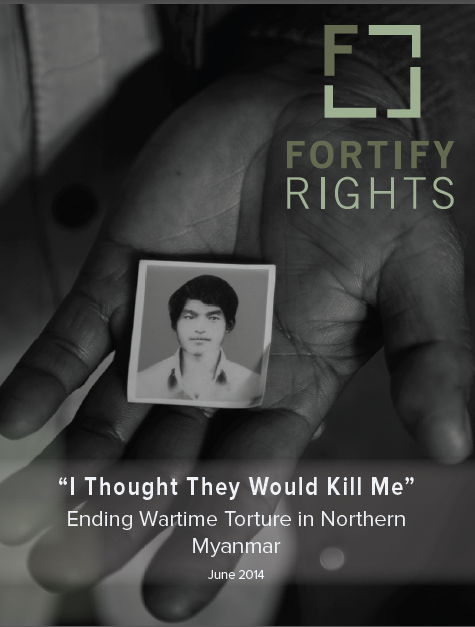 (Yangon)— For the past three years, Myanmar authorities have systematically tortured Kachin civilians perceived to be aligned with the Kachin Independence Army (KIA), Fortify Rights said in a new report released today. Fortify Rights believes these abuses constitute war crimes and crimes against humanity. The government of Myanmar should intervene immediately to end the use of torture in the conduct of the ongoing war in Kachin State and northern Shan State, and it should credibly investigate and prosecute members of the Myanmar Army, Myanmar Police Force, and Military Intelligence who are responsible for the serious crimes described in this report.
(Yangon)— For the past three years, Myanmar authorities have systematically tortured Kachin civilians perceived to be aligned with the Kachin Independence Army (KIA), Fortify Rights said in a new report released today. Fortify Rights believes these abuses constitute war crimes and crimes against humanity. The government of Myanmar should intervene immediately to end the use of torture in the conduct of the ongoing war in Kachin State and northern Shan State, and it should credibly investigate and prosecute members of the Myanmar Army, Myanmar Police Force, and Military Intelligence who are responsible for the serious crimes described in this report.
The 71-page report, “I Thought They Would Kill Me”: Ending Wartime Torture in Northern Myanmar, describes the systematic use of torture and other cruel, inhuman, and degrading treatment or punishment (“ill treatment”) of more than 60 civilians by Myanmar authorities from June 2011 to April 2014. Members of the Myanmar Army, Myanmar Police Force, and Military Intelligence deliberately caused severe and lasting mental and physical pain to civilians in combat zones, […]
• • •Truce or Transition? Trends in Human Rights Abuse and Local Response in Southeast Myanmar Since the 2012 Ceasefire
In January 2012, the Myanmar government and the Karen National Union (KNU) signed a preliminary ceasefire agreement, bringing to a halt what is often referred to as the world’s longest-running civil war. This conflict engendered severe human rights abuse of civilians at the hands of a range of armed actors, primarily at those of the Myanmar Armed Forces (Tatmadaw). The ceasefire and other recent political developments in Myanmar have altered the ways in which human rights abuse is experienced by Karen people in the Southeast, and transformed the context within which these abuses can be addressed. This report aims to demonstrate how trends in human rights abuse have changed during the post-ceasefire period […]
• • •Council Conclusions on the Establishment of a Human Rights Dialogue with Myanmar/Burma
The Council adopted the following conclusions:
The Council recalls the adoption in 2001 of the European Guidelines on human rights dialogues, revised in 2008.
The Council recognizes the importance of further strengthening the relationship between the European Union and Myanmar/Burma by establishing an EU-Myanmar/Burma Human Rights dialogue, as foreseen in the Council Conclusions on the Comprehensive Framework for the European Union’s policy and support to Myanmar/Burma of 22 July 2013 and agreed during the EU-Myanmar/Burma Task Force held on 13-15 November 2013 […]

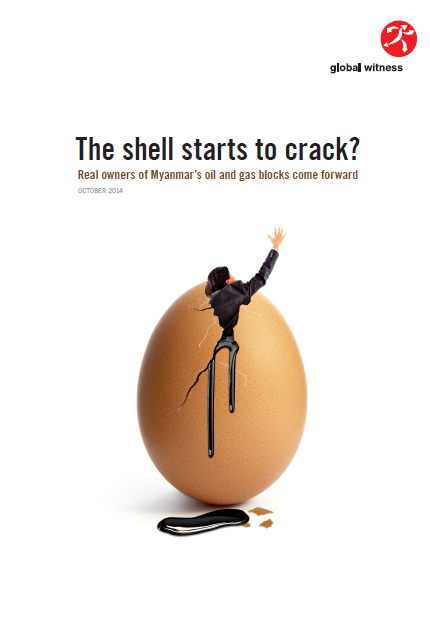
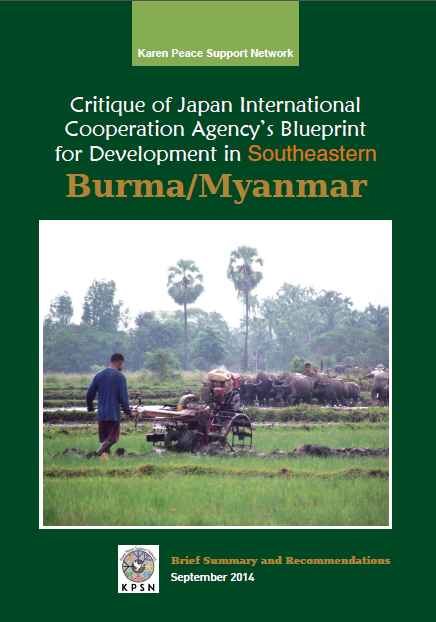
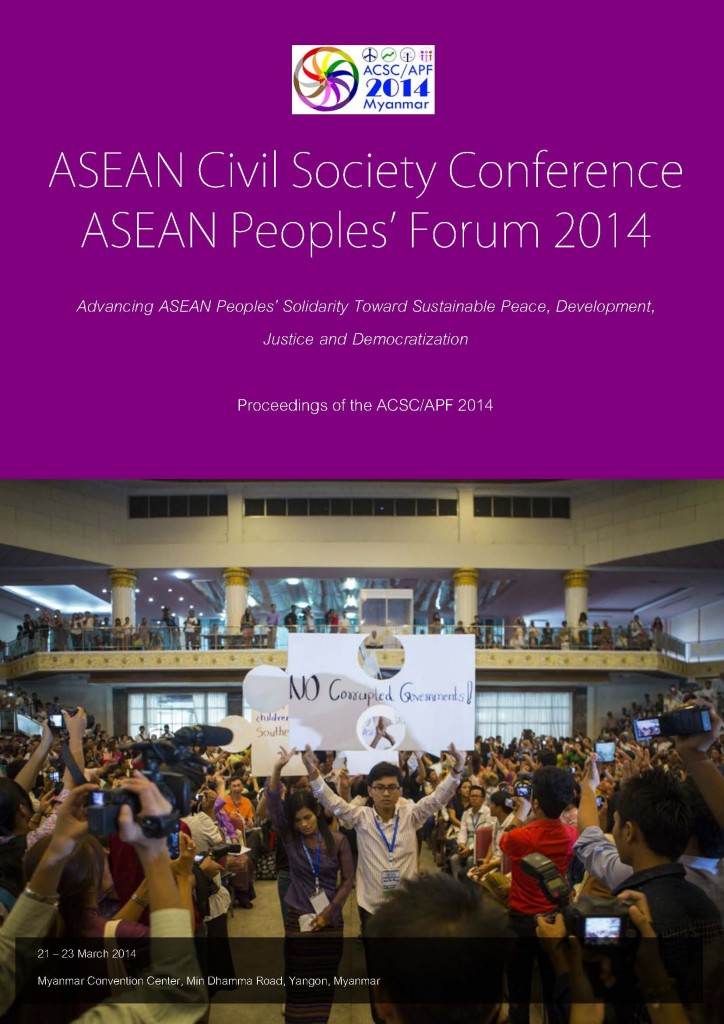
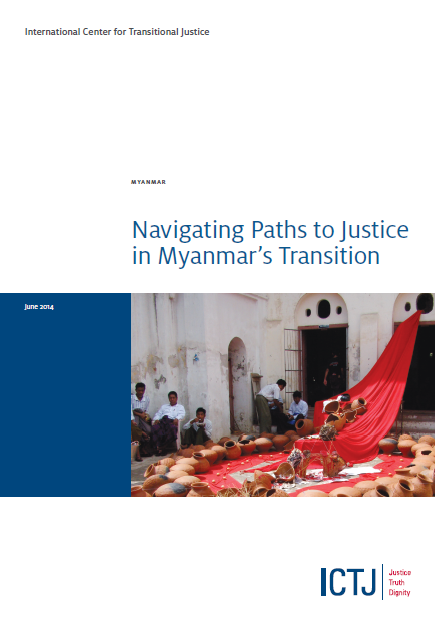
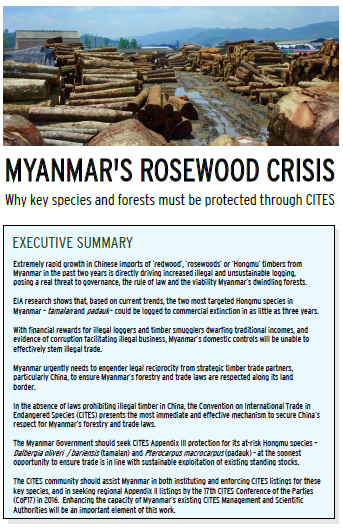
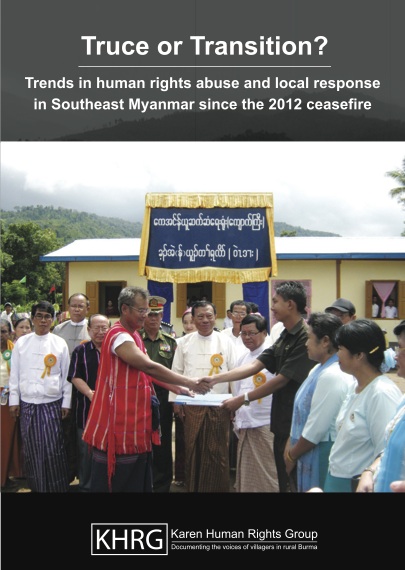
 All posts
All posts